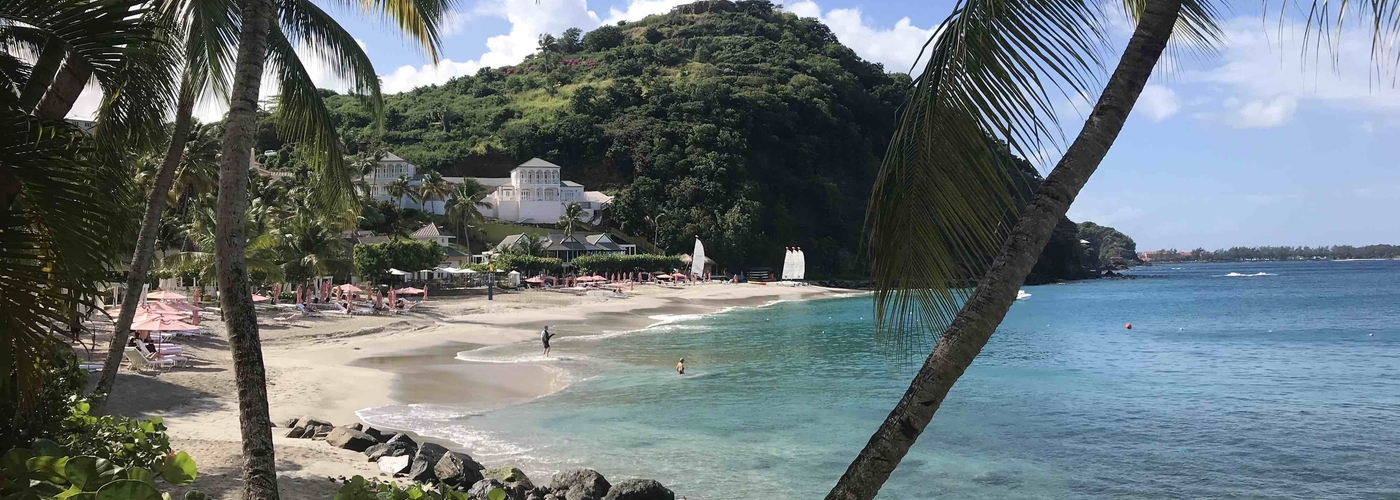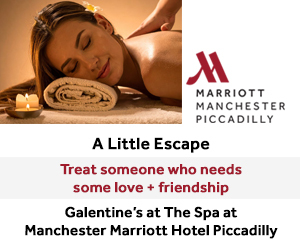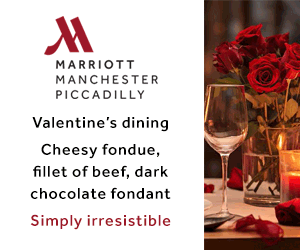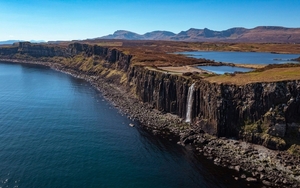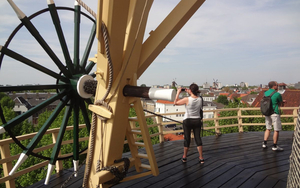Mud baths, cocoa plantations, peg leg pirates and 160 proof rum
‘HERE’S mud in your eye!’ It’s an old-fashioned toast - perfect to accompany a nip of local rum. When it’s the sulphurous real stuff you’re trying to scrape out of your pupil it’s a less than intoxicating travel experience. Everyone around me seems to have coped with daubing themselves with volcanic deposit and I’m the only self-blinded wuss. No, I’ll forgo the obligatory souvenir shot, guys.
From the hammock of our self-contained villa we watched a spectacular sunset emerge from that mist
In the rainforest hills above St Lucia’s old capital, Soufriere (named after the resident volcano, dormant since the 18th century) Sulphur Springs promotes the merits, for health and skin tone, of mud. Grab a handful from a bucket to coat yourself, then take a dip in the geothermal hot pools. It’s all very jolly, if messy.
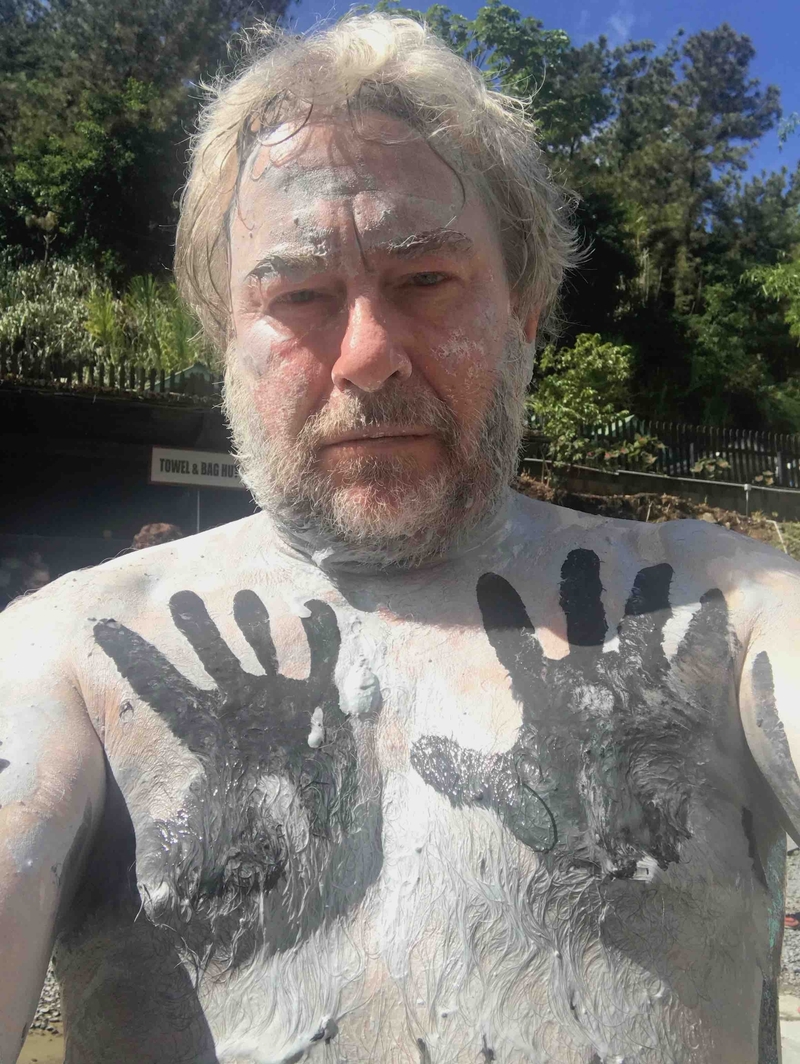
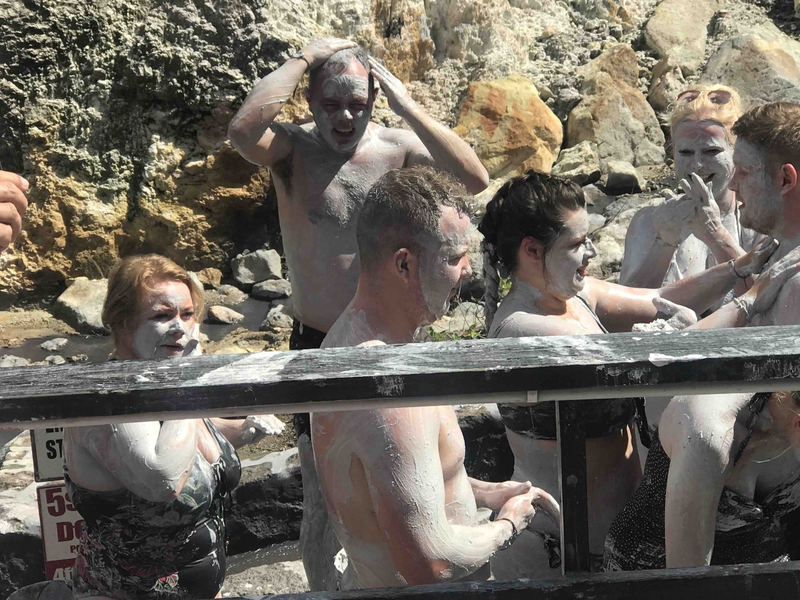
Alternatively opt for the more sophisticated pleasures of island speciality chocolate further up the valley, where rival growers, Hotel Chocolat, with its eco-chic deluxe Boucan lodgings, and 250-year-old working plantation resort Fond Doux offer ‘educational’ chocolate experiences to non-residents. The latter preserves, as an attraction, the traditional cocoa-rina dance performed barefoot on cacao beans to polish them. Wash off the mud first please.
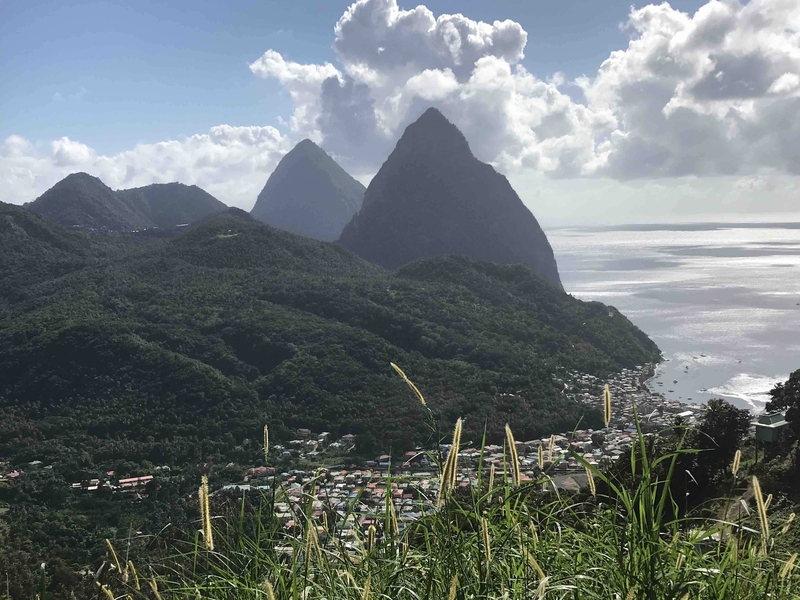
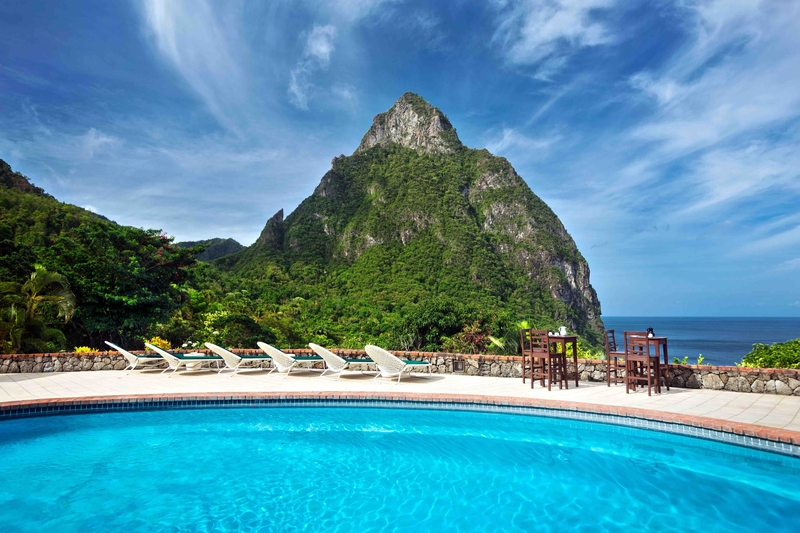
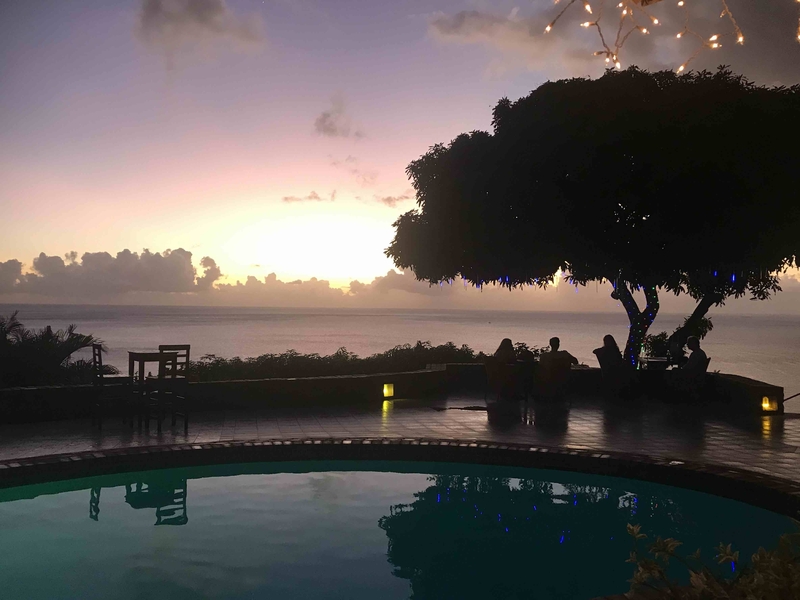
We were staying a few minutes away in an equally lush setting at Stonefield Resort, a former cocoa plantation in the lee of the Petit Piton. It and twin volcanic pyramid the Grand Piton, World Heritage listed, form the defining image of St Lucia, maybe of the whole Caribbean. A goodly chunk of which can be viewed after a challenging climb up either.
St Lucia’s Nobel Prize winner, Derek Walcott, in his epic poem Omeros, alluded to these forested peaks rising out of the ocean: "In the mist of the sea there is a horned island/with deep green harbours”. From the hammock of our self-contained villa we watched a spectacular sunset emerge from that mist, then took a dip in our pool to the dusk chorus of tree frogs.
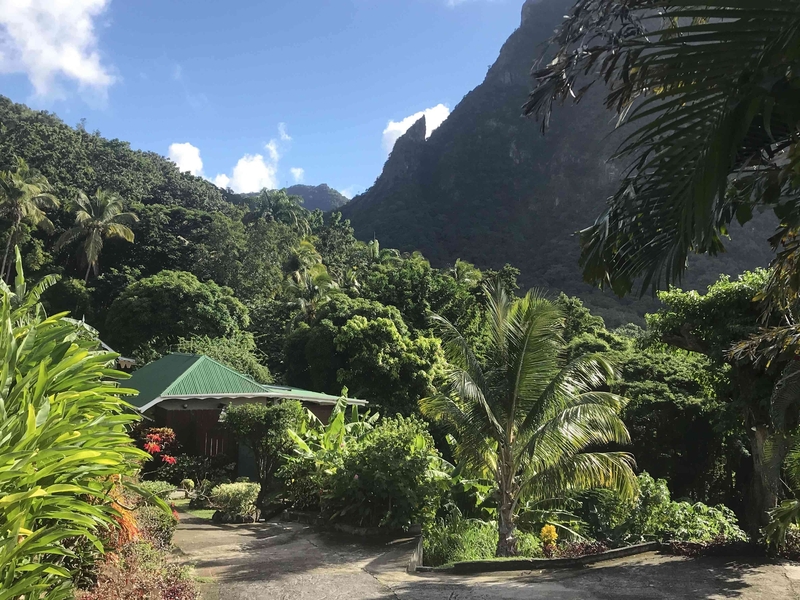
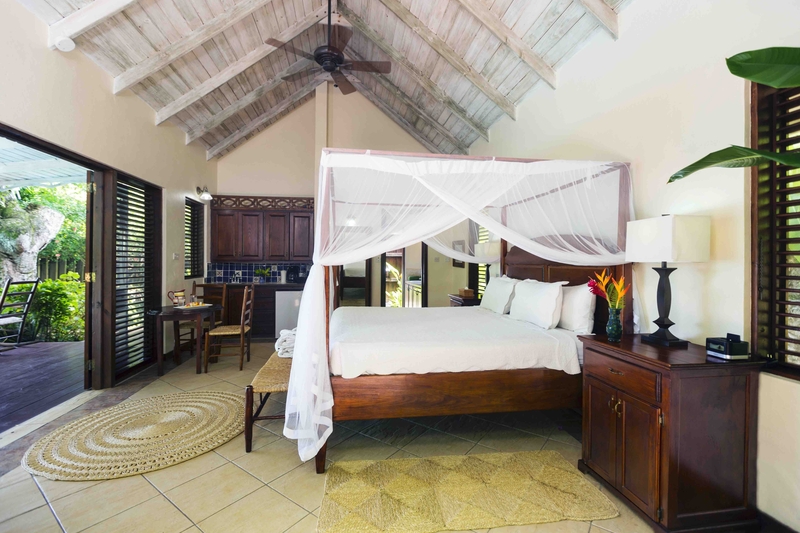
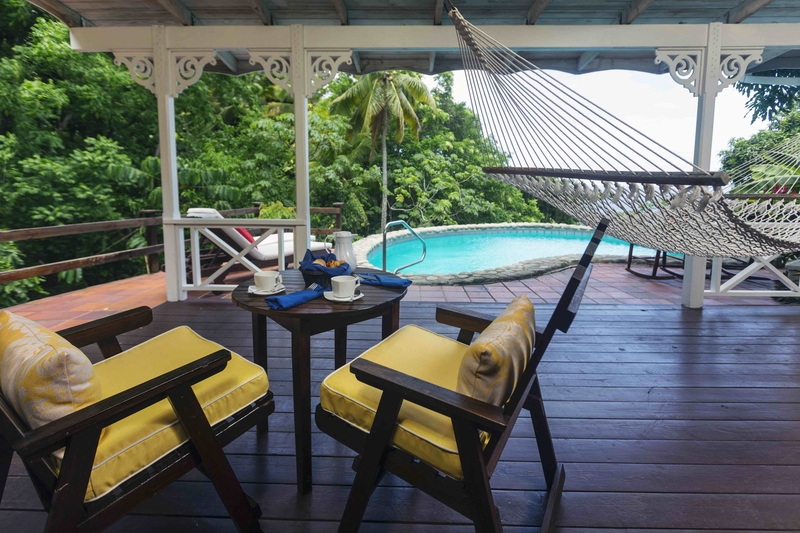
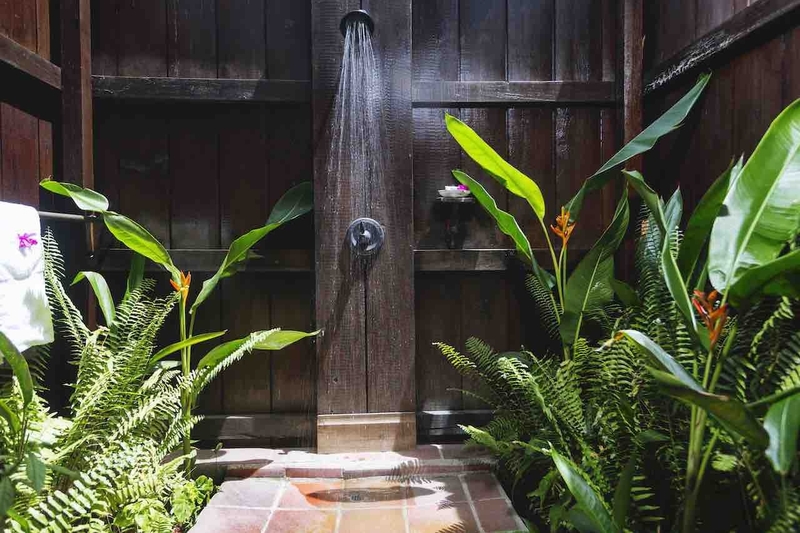
Dining to a steel band on Stonefield’s Mango Tree restaurant terrace, we chuckled at the presence of water pistols on each table – to deter the resident finches who brazenly swoop for their tithe. Papaya and banana jams from fruit grown on site are their particular favourites.
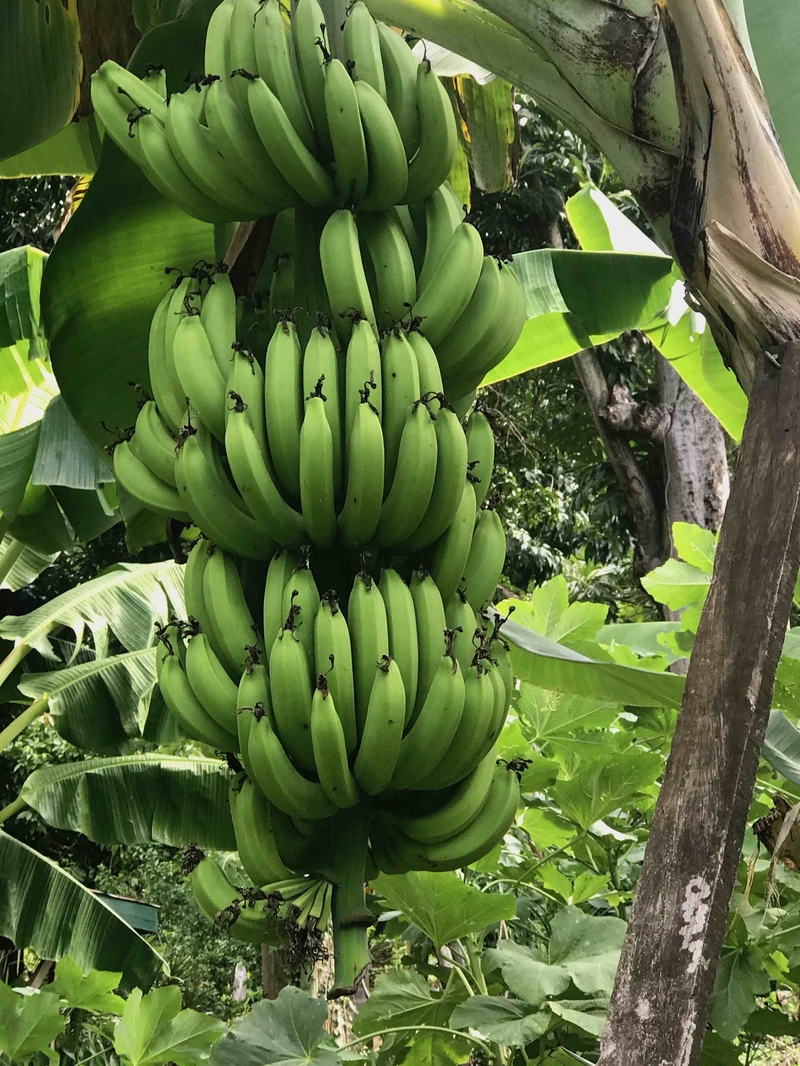
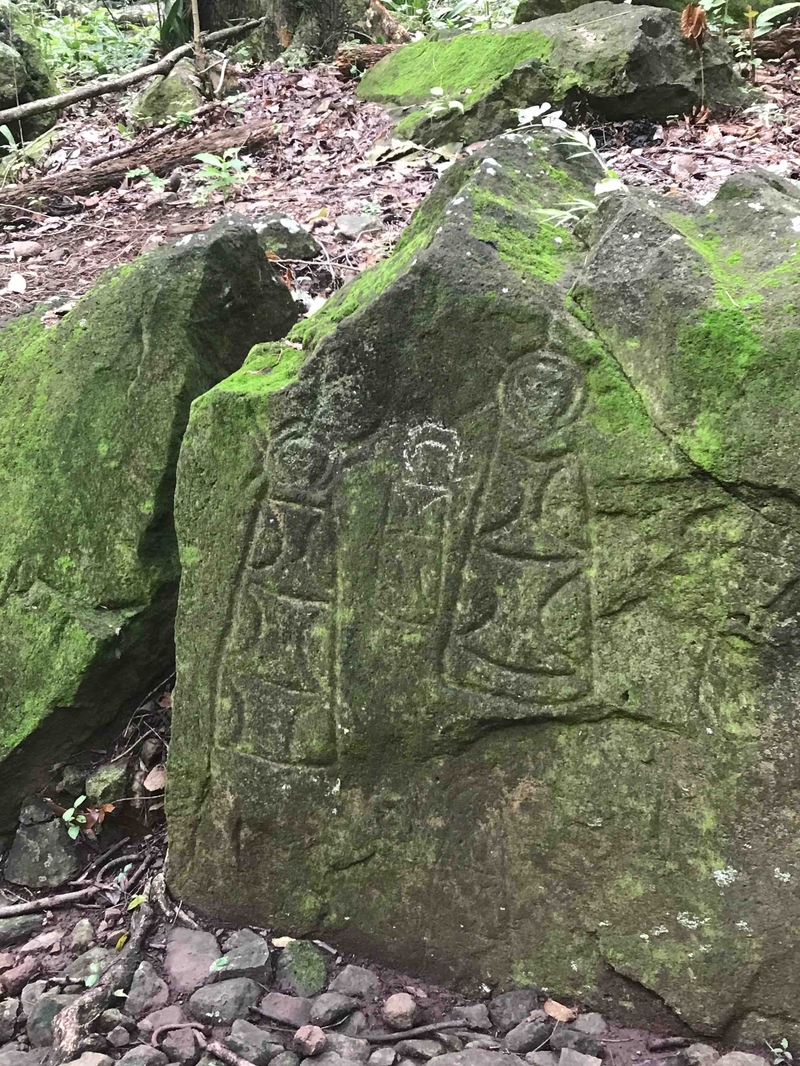
We took a tour of the privately owned estate, developed by the Brown family in the 1990s. Evidence of ancient habitation is a prime example of a petroglyph. Such rock carvings are said to have been drawn by Carib Indians to signify a place of fertility and energy. Stonefield’s may well have been a birthing site. We just lapped up the sheer serenity of our surroundings.
Among the veg plots, hanging from the trees is every kind of tropical fruit you’ve encountered before and some you haven’t – soursop (remove the toxic inner seed from this prickly fruit and the pulp is base for a milky strawberry-like smoothie), golden apple (not an apple as we know it, a thick-skinned green fruit that ripens to yellow after it drops from its tall tree) and sorrel (not the citrussy green herb we forage for at home, it comes from hibiscus, the national flower of St Lucia. Its dried sepals make a sour, raspberryish drink).
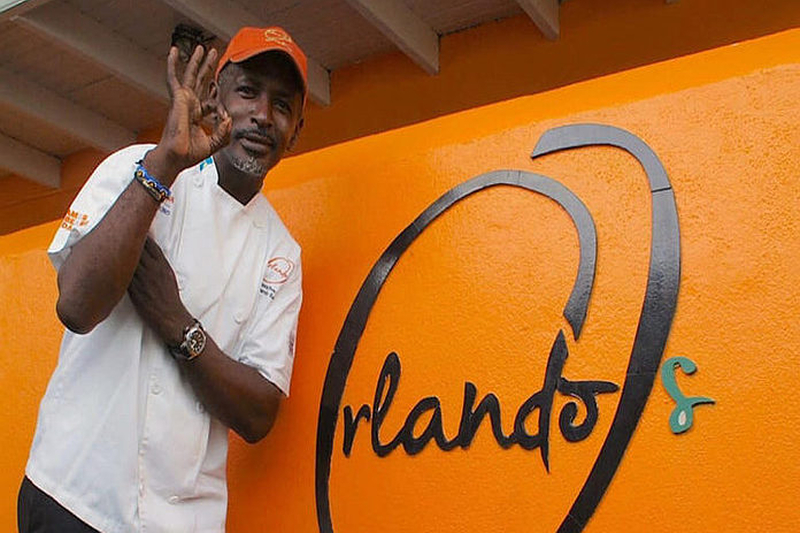
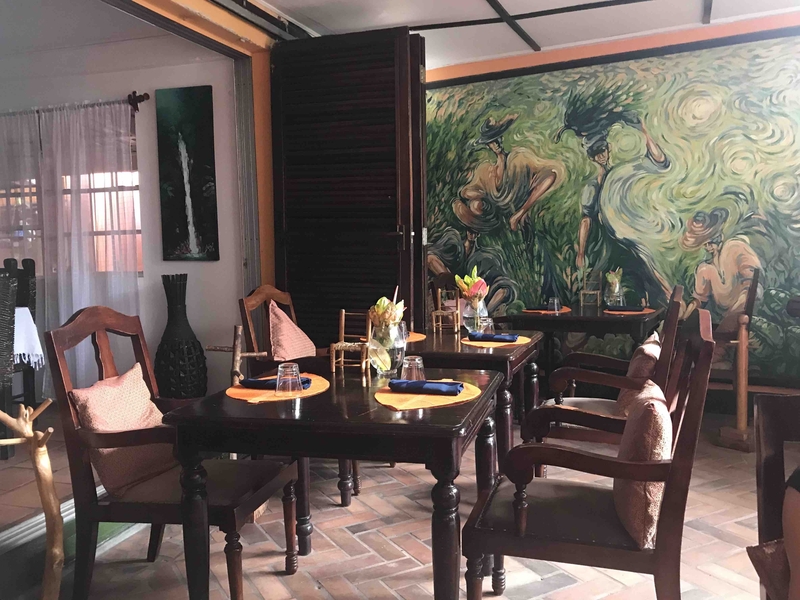
All this horticulture sparked our interest in St Lucian cuisine and Orlando’s restaurant, close to the Soufriere seafront, seemed the perfect introduction. Since our visit Orlando Satchel has been named Chef of the Year in the 2020 Caribbean Travel Awards. At the swanky Ladera resort he became the standard bearer for the island’s farm-to-table movement, then moved on and last year opened his second eponymous restaurant in Rodney Bay.
The original Orlando’s is homelier but there was a rarefied attention to detail in the Sunday lunch we sampled there, using the freshest of fish and indigenous veg. It’s in complete contrast to the vast, cheap lunch we worked our way through in Castries Market.
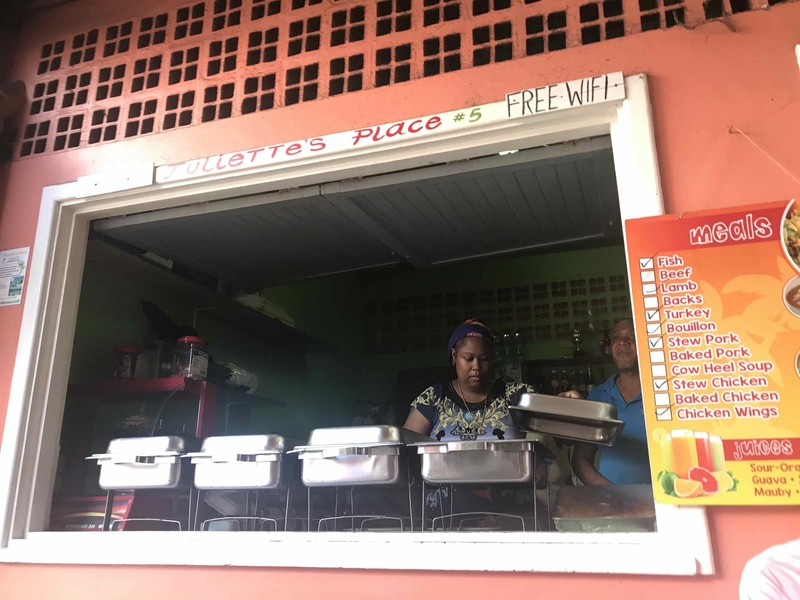
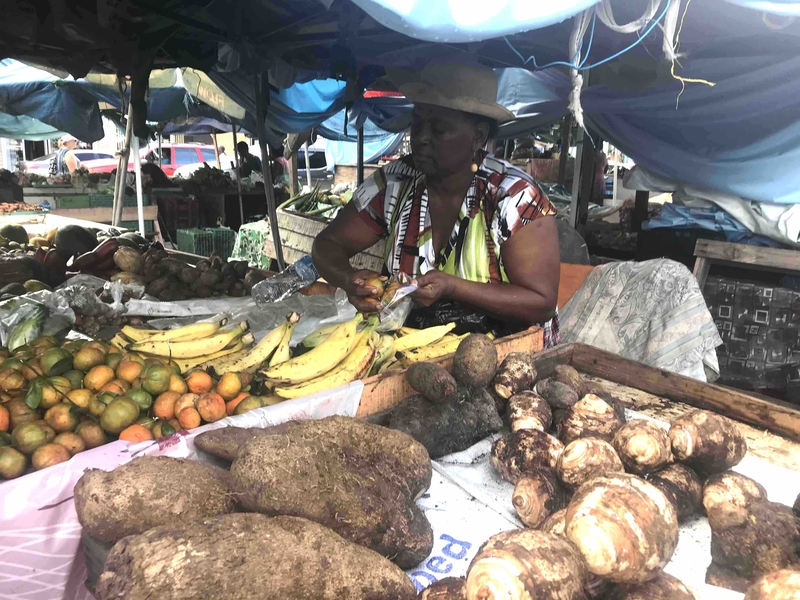
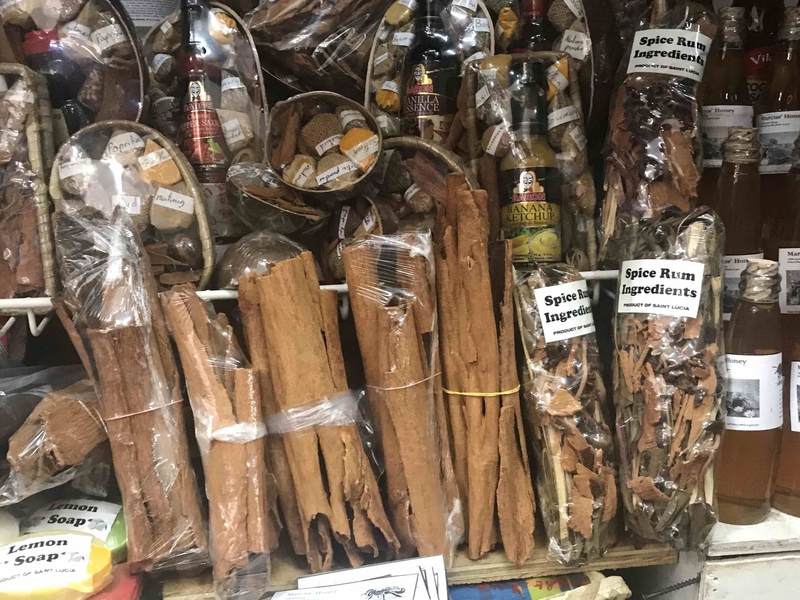
This has been named as one of the top 10 food markets in the world. Certainly it’s a place to stock up on spices. We were on food tour of the St Lucian capital run by City Walkers, which culminated in an authentic lunch in a market cafe recommended by our young guide.
In truth the blackboard at Juliette’s Place offers the same menu as all the other hole in the wall eateries. In the absence of cow heel soup, I ordered the pork, which decidedly wasn’t off the bone, on the gristly side but tasty. Alas, the plate was overwhelmingly piled high with various carbs from mac and cheese to rice.
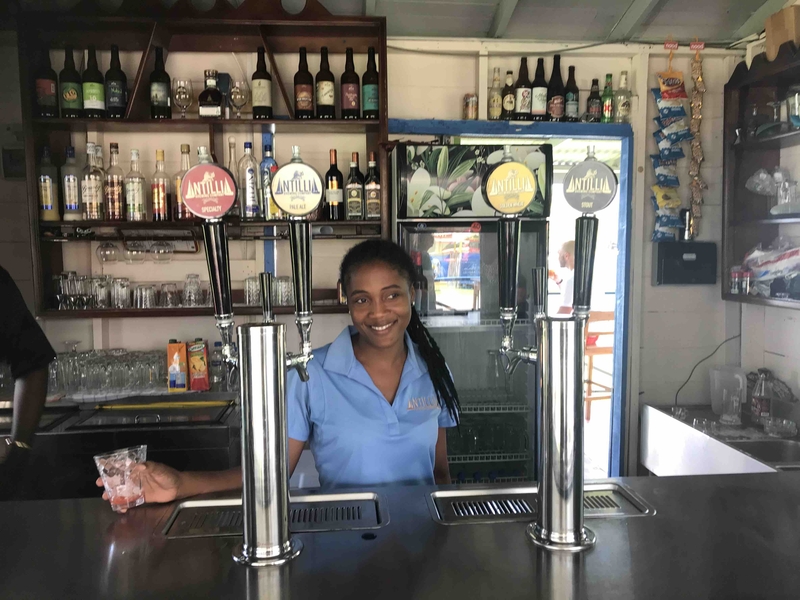
The market has more than 300 vendors and its craft section is a mecca for the cruise ship crowd. The vast liners dock at Pointe Seraphine across the harbour. We caught a close-up view in a visit to taste the only craft beer brewed on the island, Antilla, served at their the tiny waterfront taproom. It's a side project of a brewery in Nova Scotia, Canada. We recommend the Passionfruit Pale. The ubiquitous local alternative, Piton lager, served ice cold, is refreshing but characterless.
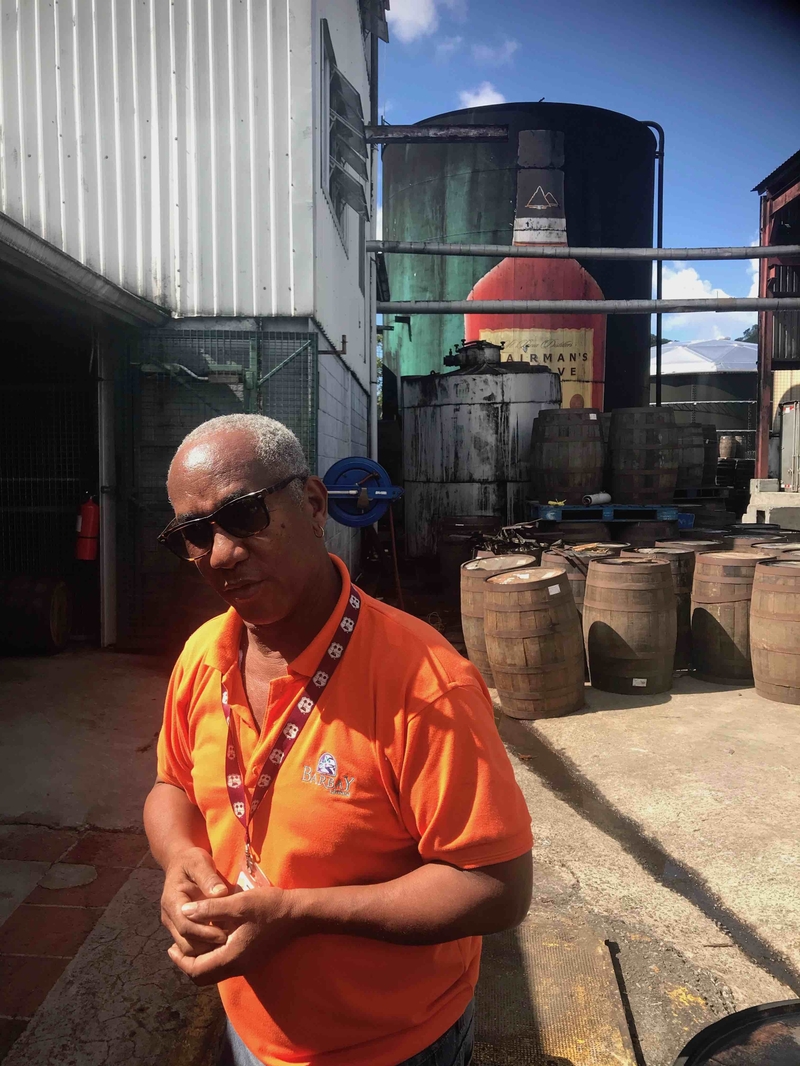
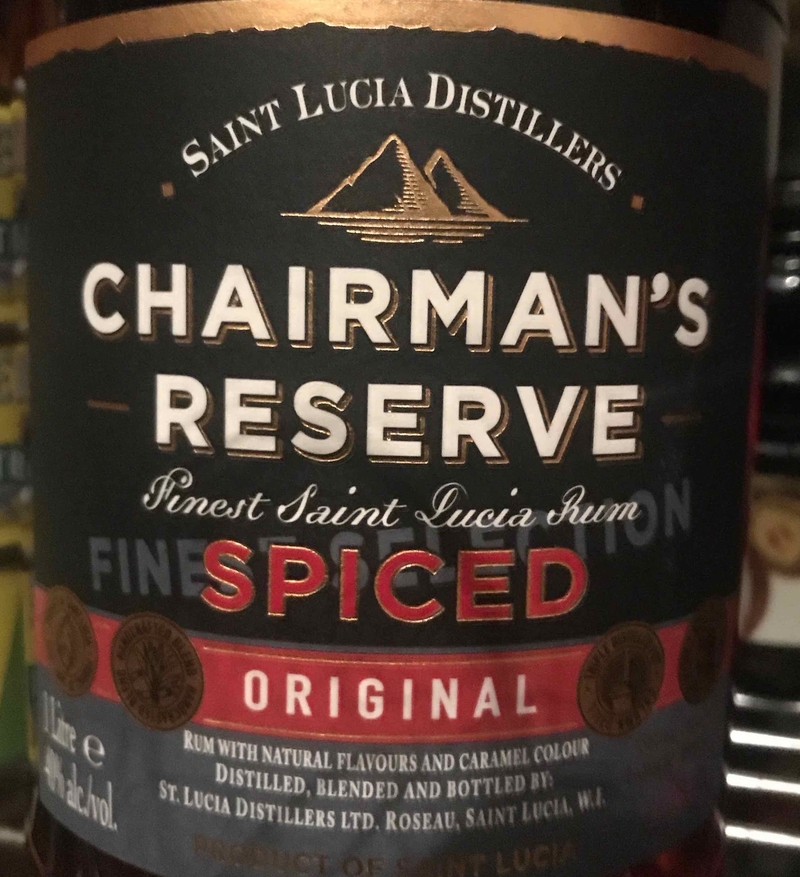
The two hour west coast road trip north from Soufriere to Castries is a clifftop, hairpin bend rollercoaster ride, requiring strong nerves at the wheel (taxi recommended). En route, the views are fabulous, the fishing villages of Anse La Raye and Canaries worth a quirky stop-off, our only regret we hadn’t time to detour to picturesque Marigot Bay.
Inland consolation, a ‘Rhythm of Rum’ tour of St Lucia Distillers. The island no longer produces commercial quantities of sugar cane, importing molasses from Guyana or Barbados, and this is the only producer left, but the quality is high from the core brand Chairman’s Reserve upwards. At the end of the hourlong tour you get to sample their 20 or so products and access discounts on purchases at the Rhum Shoppe. Caution: the Denros Strong Rum is what it says on the label 80% ABV, 160º proof.
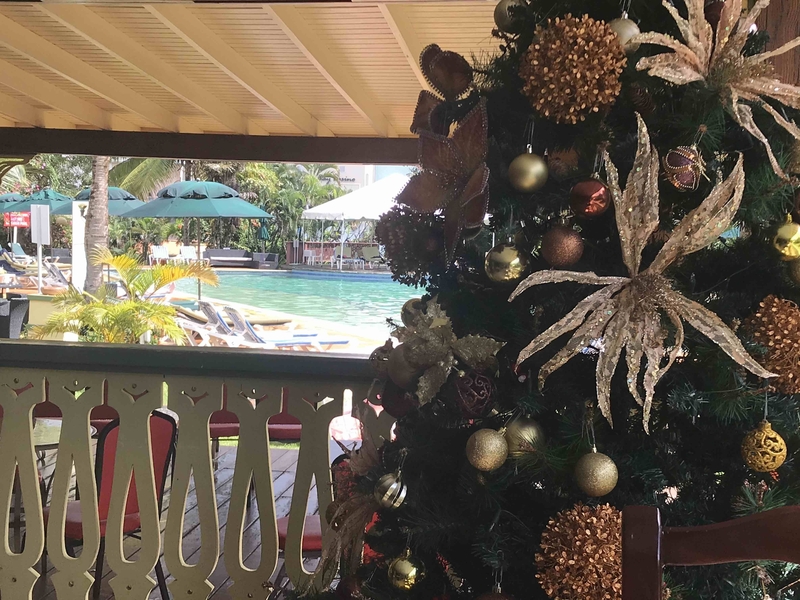
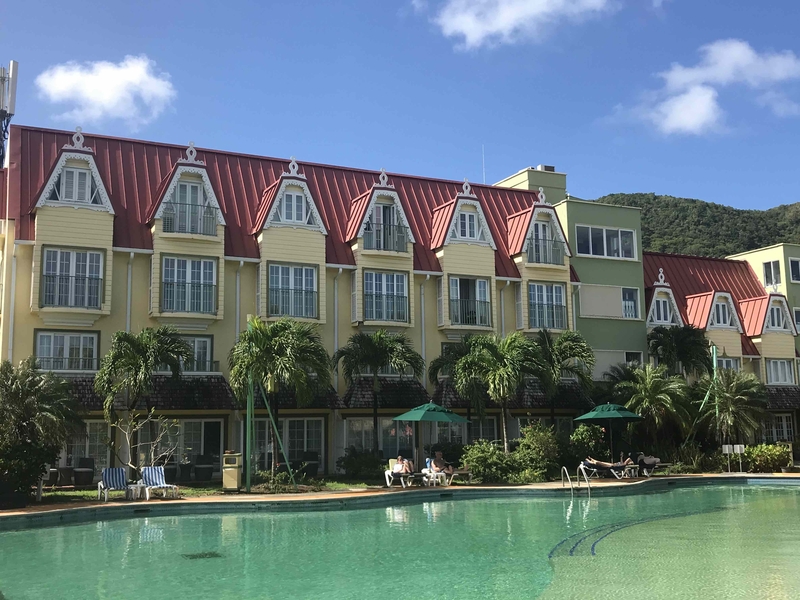
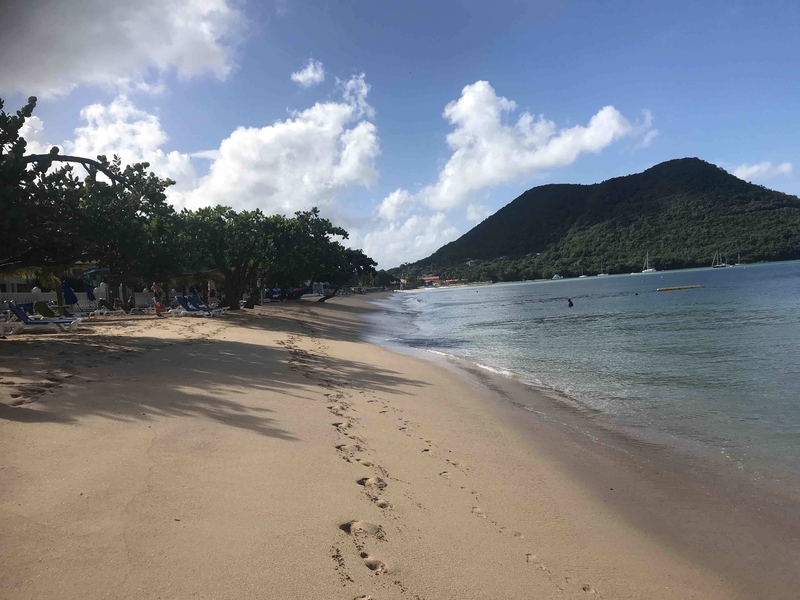
A welcoming rum punch at Coco Palm Resort in Rodney Bay packed none of that fire power but it was welcome after a long journey up from the south. Oddly the punch paired up well with the resort’s Caribbean Christmas decorations to a soundtrack of ‘Let it snow, let it snow, let it snow’.
Ironic since it was 30º as we opened the French windows of our ‘Swim-up’ room to look out on the floodlit pool. Coco Palm may lack seafront access – it’s a 10 minute walk from the lovely white sand Reduit Beach – and rubs shoulders with the malls and bars of Rodney Bay’s lively strip, but it has a laidback haven feel.
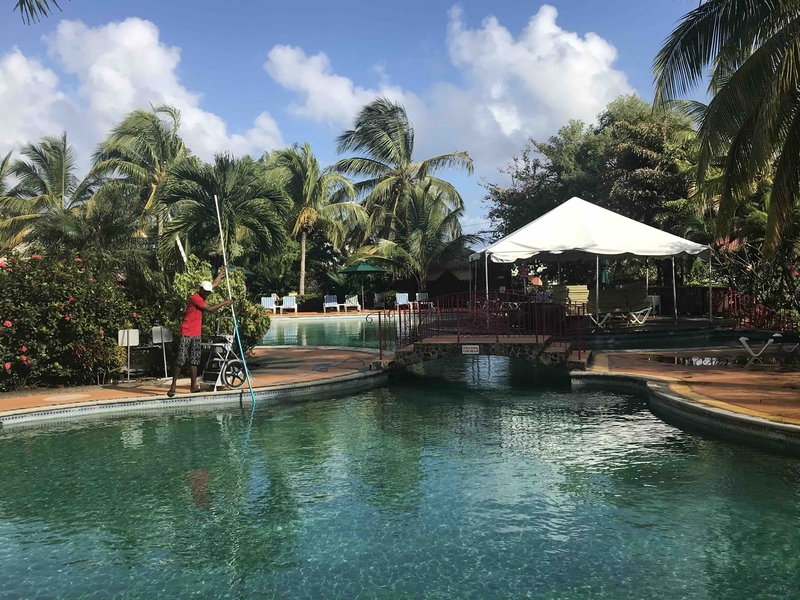
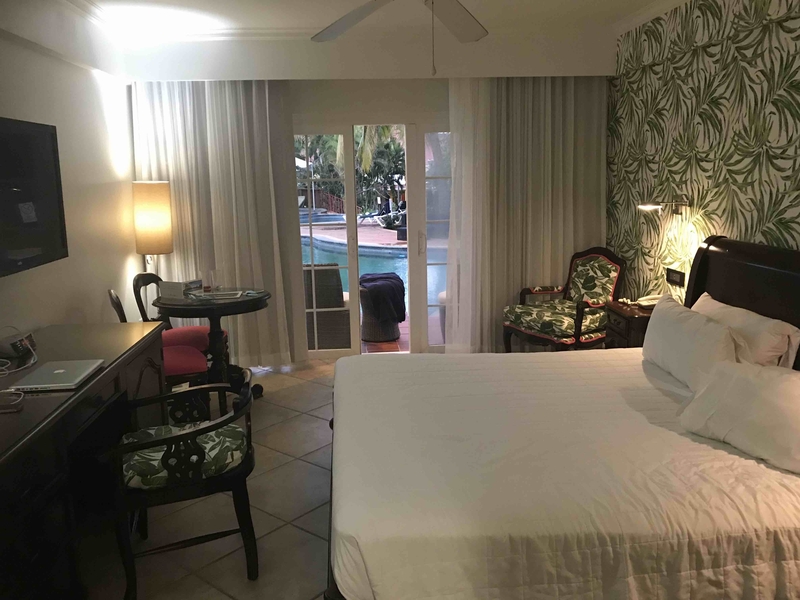
We were keen to continue our culinary quest at the resort’s folky Creole Grill at the far side of the pool. ‘Creole’ is the island cuisine, linked loosely to the French influence but not to be confused with the gumbos and jambalayas of the New Orleans/Louisiana version of the term… and definitely not as spicy. Ingredients often have their roots in Africa, imported with the slaves.
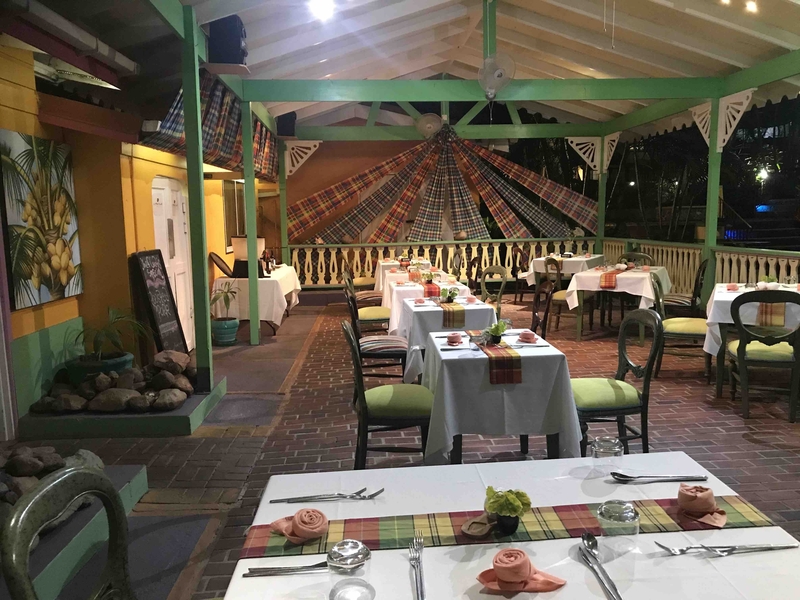
Salt fish (dried salted cod akin to Portuguese bacalao) is a staple. The national dish is salt fish and green figs, which confusingly are boiled green unripe bananas. They also feature in mayo-doused salads. Tastier is accra, a kind of creamy salt fish fritter, pepped up with Scotch bonnet chillies, while callaloo, using the green leaf of that name along with meat or fish, okra and coconut milk, is a substantial, addictive soup.
Accra and fried dough ‘bakes’ are the kind of finger food you’ll find – along with barbecue, lashings of rum punch and much dad dancing – at street parties. The most famous in the north of the island is Friday Night Jump Up at Gros Islet, just north of Rodney Bay.
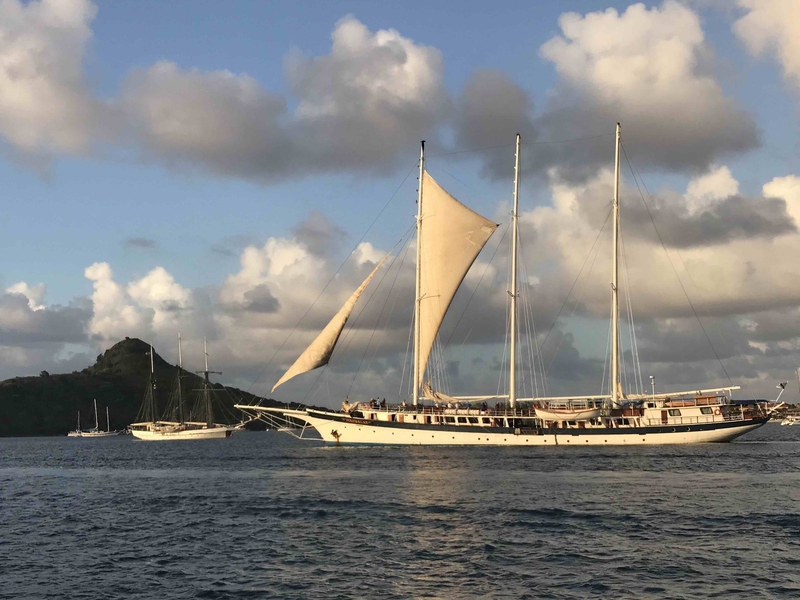
Alas, we were double-booked that evening on an equally riotous sunset cruise out beyond Pigeon Island, courtesy of our third St Lucian lodging, BodyHoliday Resort, another all-inclusive but with a difference. For 30 years this family-owned property has promoted wellness, long before that holistic hotel approach became a buzz word.
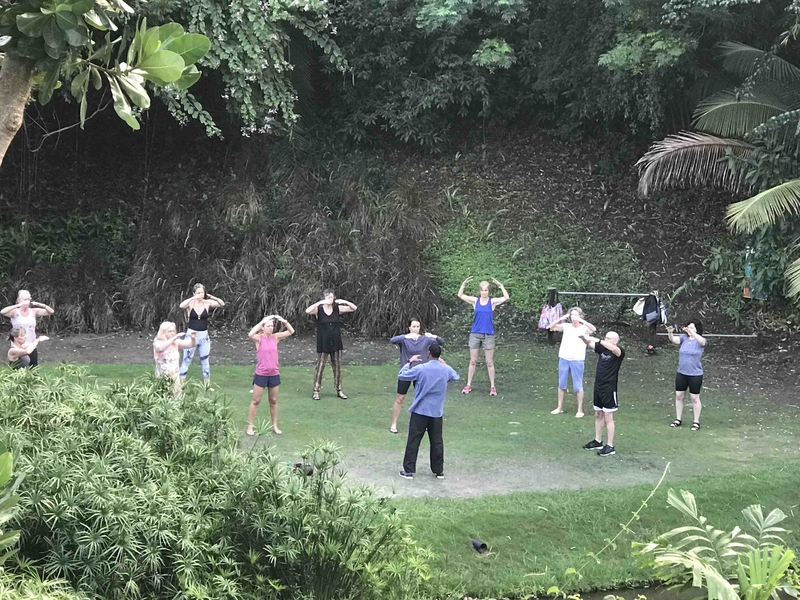
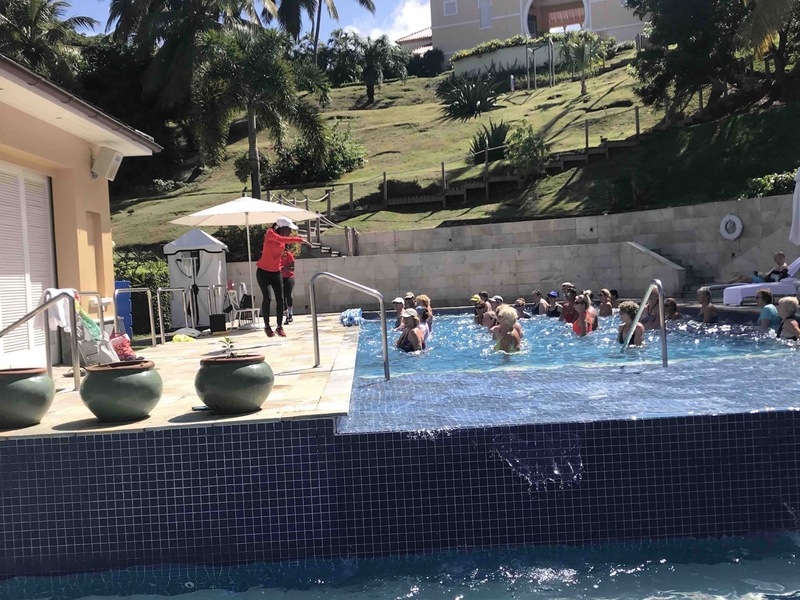
From dawn tai chi in a lakeside temple to windsurfing off pristine Cariblue Beach, there’s an amazing roster of activities, matched by the chill-out opportunities at fine bars and restaurants. It's a benign regime.
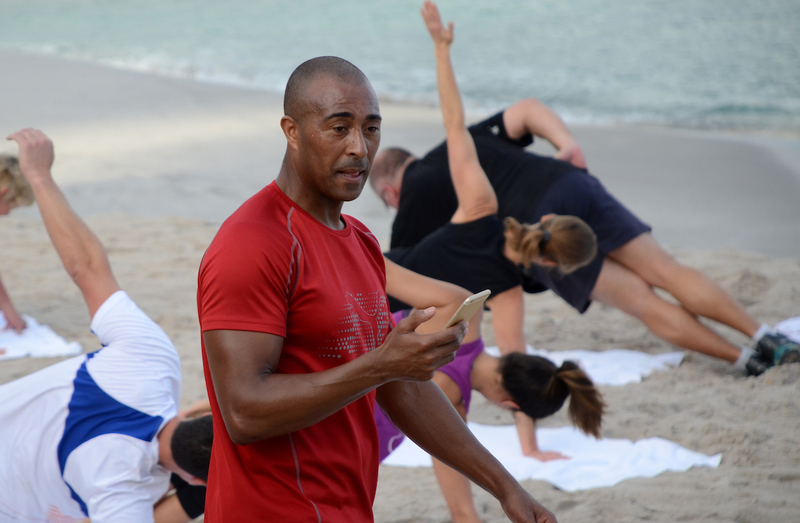
The names I now associate with BodyHoliday are Colin Jackson and Amy Winehouse. The Olympic silver medallist because he and fellow Welsh athlete Jamie Baulch were the current guest trainers during our stay (I surveyed the beach workouts they led from afar); Amy because she spent months here trying to conquer her demons before her death at just 27.
There’s a YouTube clip of her playing the piano in the Clubhouse. Even here she felt the burden of her fame/notoriety. Her escape? To her island friend Marjorie Lambert’s ramshackle beach bar at lower key Cas en Bas. Marjorie still runs it. Generous acts of kindness endeared Amy to the locals; legend has it she always planned to return to this northern part of St Lucia.
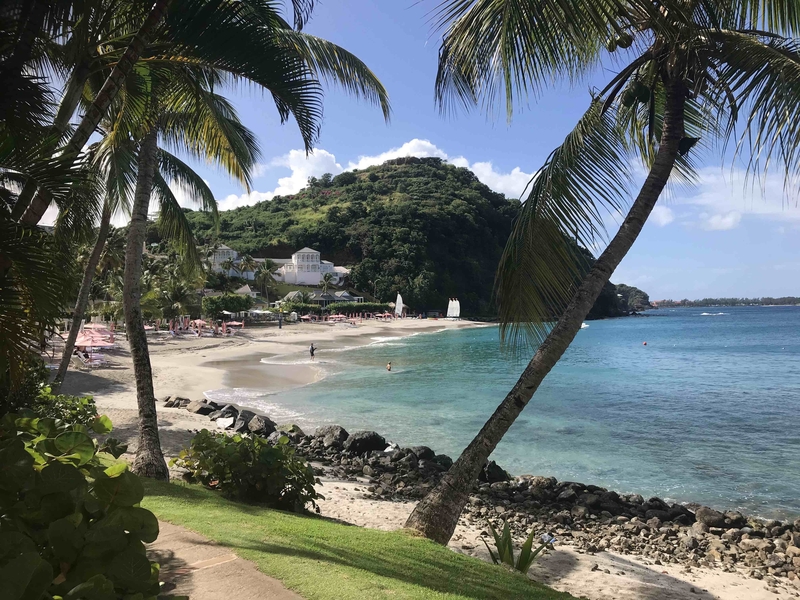
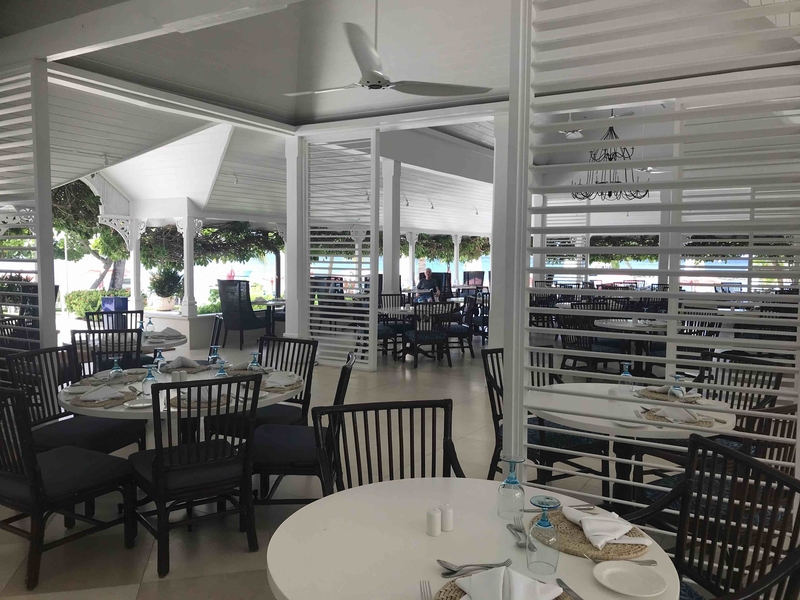

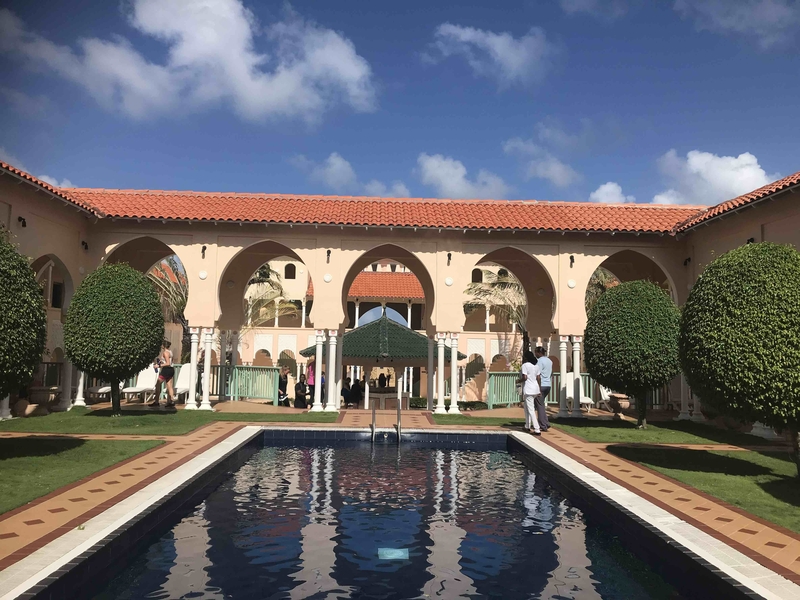
We can understand why. It is pure escapism here. The only wifi is in rooms. Our balcony overlooked a palm-lined beach, a candy-striped trike dispensing ice creams, waiters wading out to floats with liquid refreshments. As in the other resorts, all standard drinks were included (and the wine here was better). You certainly wouldn’t want to miss the complimentary treatment each day in the Alhambra-inspired spa complex (you have to upgrade to Ayurvedic) or meals in any of the four restaurants.
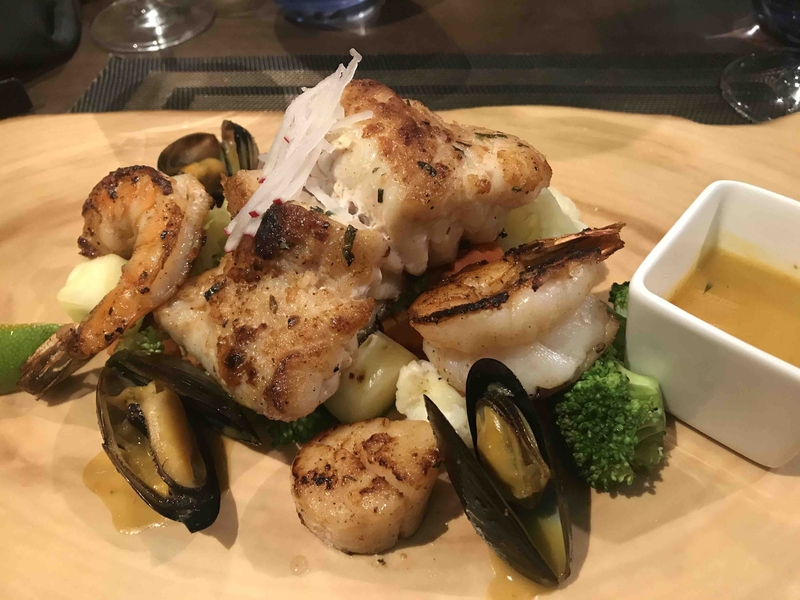
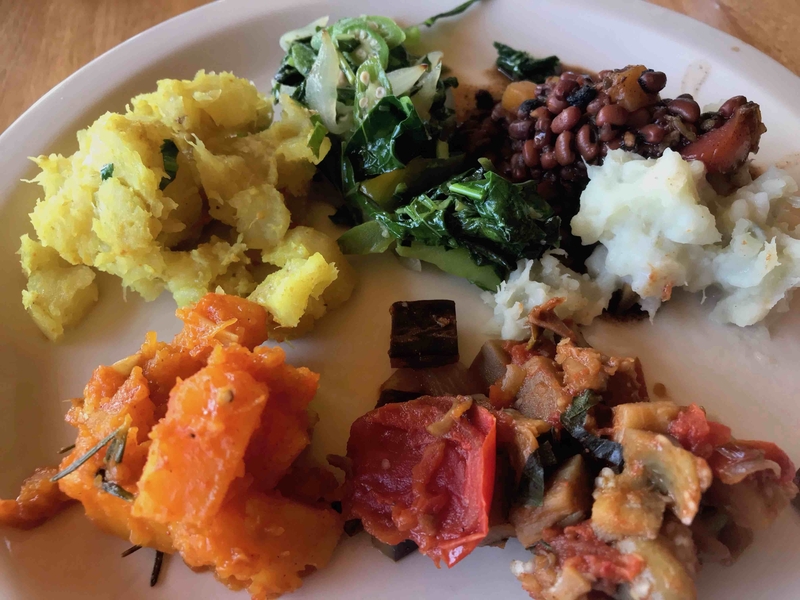
Highlight was definitely Tao, specialising in East-West Fusion. At a table overlooking the sea who could resist coconut fish laksa followed by a teeming seafood platter? A Trimbach Alsace Riesling to accompany – the resort’s Wine Salon is another plus for those of us more couch potato than pilates coach.
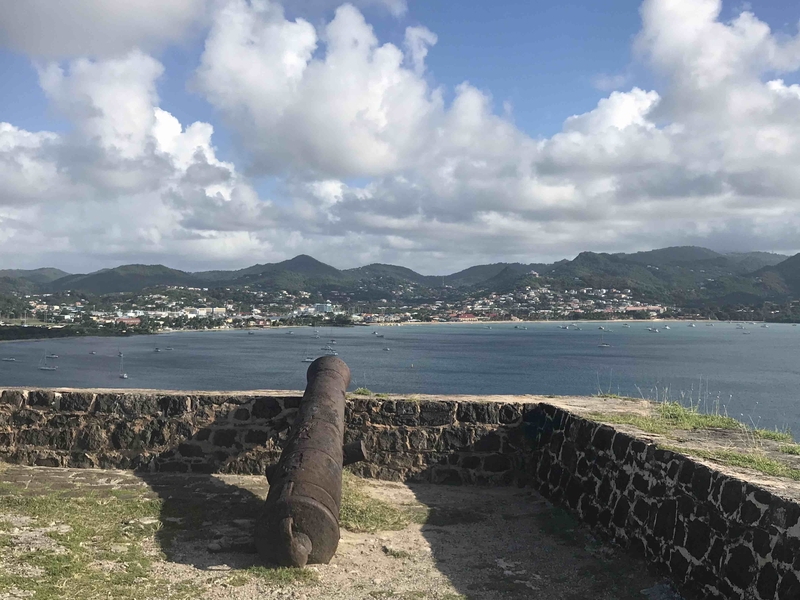
Still even I regretted not tackling a Piton. Our sedater substitute a trek on nearby Pigeon Island, a 44 acre historic site with spectacular hilltop views, once the lair of a pirate called Jambe de Bois (Peg Leg, yes the first one). The island, joined to the mainland by a causeway in 1972, is dotted with ruins of a British garrison, strategically placed to monitor French Martinique; we yomped up to the summit of Fort Stanley. On the battlements we murdered Rehab in tribute to poor, doomed Amy, in May 2009 cajoled into headlining the St Lucia Jazz Festival on Pigeon Island. It wasn’t her finest hour.
As on that night, the heavens opened and back at the water’s edge we sought shelter in Barnacles Bar, set in the atmospheric cellar of the old officers quarters dating back to 1750. The landlord seemed genuinely disappointed we weren’t going to make inroads into his comprehensive rum list. Did we look the buccaneering type?
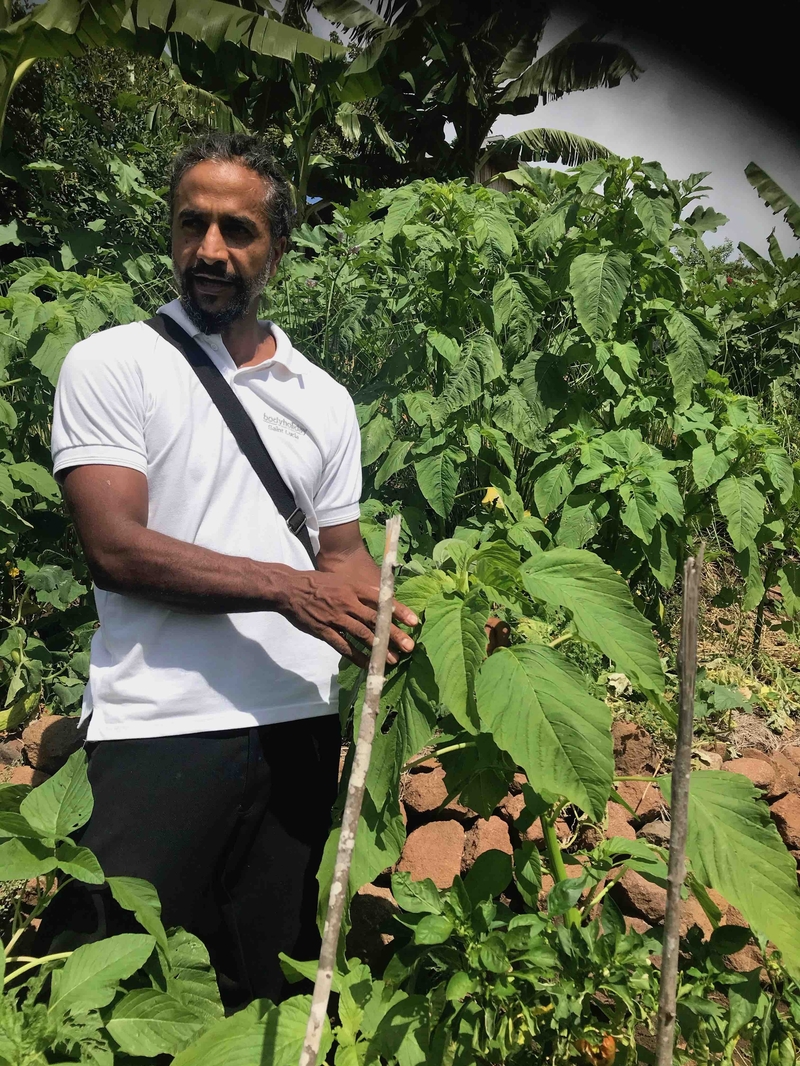
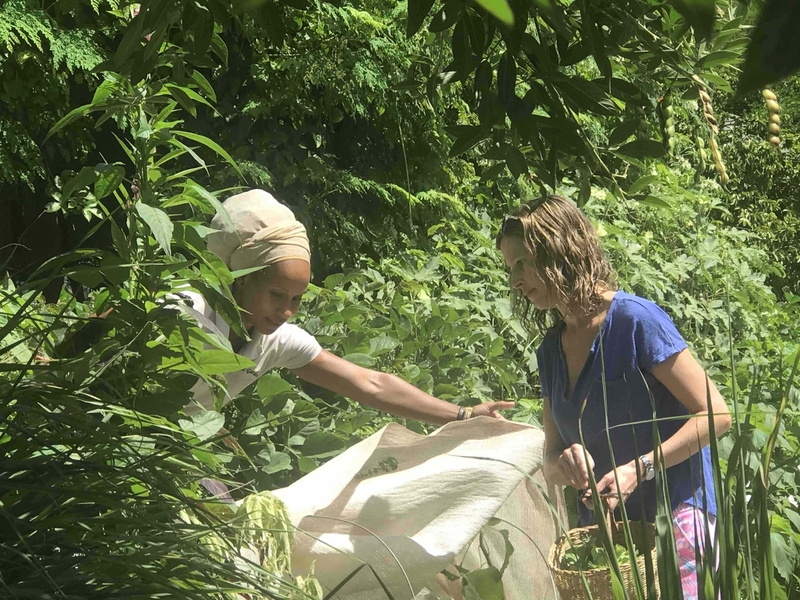
Back at BodyHoliday came the highlight of the trip, tying together all the strands of our curiosity about indigenous foodstuffs. The ‘I-Tal farm to plate experience’ demonstrates a desire to move with the sustainability conscious times. Charismatic Canadian-raised Rastfarian Damian and his wife Ratoya run it. They had returned to their St Lucian roots to farm and sell herbs and salads to the resort; when the new venture was launched they were the perfect fit.
What a morning they gave our small group as we picked tropical produce from the fertile hillside gardens, then helped prepare it before enjoying a six course lunch cooked up on the terrace. Vegan with the vibrancy of utter freshness. It was revelatory. Every plant had a story, every planting a purpose. The word I-Tal comes from ‘vital’. Developed by the Rastas, it signifies a natural way of cooking that avoids processed foods, additives, salt and sugar. The perfect wellness diet. Every body deserves such a holiday.
Fact file
Neil Sowerby stayed at three resorts, each with their own individual charm and character:
Stonefield Villa Resort There are 17 villas of varying capacities on site, mostly one-bed but going up to five. All were individually designed and built by late owner Canadian Wayne Brown, a skilled carpenter. All-inclusive rate is £425 pounds per night for a one bedroom villa with private pool and the EP rate including breakfast is about £270 pounds per night.
Coco Palm Resort The 83 rooms and suite average from £150 per night based on double occupancy – subject to dates and room category. Neil stayed in a Luxe Swim Up room opening directly onto the oasis size pool. The whole family-run resort, with its understated luxury is a true bargain destination.
BodyHoliday Choose from Garden View, Ocean View and water’s edge Ocean Front rooms, plus villas. Rates start at £390 per person per night for guests, all-inclusive.
Neil travelled to St Lucia with British Airways, which runs daily flights from Gatwick to Hewannora International. Prices vary according to season. Coco Palm and BodyHoliday are each theroretically an hour and a half and away from the airport, Stonefield 45 minutes, but on an island only 27 miles long and 14 miles wide traffic hold-ups are common.
For full tourism information about this ravishing destination visit http://www.stlucia.org.
To catch his early transatlantic flight Neil stayed in a Super Room at Travelodge Gatwick Airport Central. This has recently had a £1million refurb and is just one mile from the airport and its rail station, linked by regular shuttles. Highly recommended.





